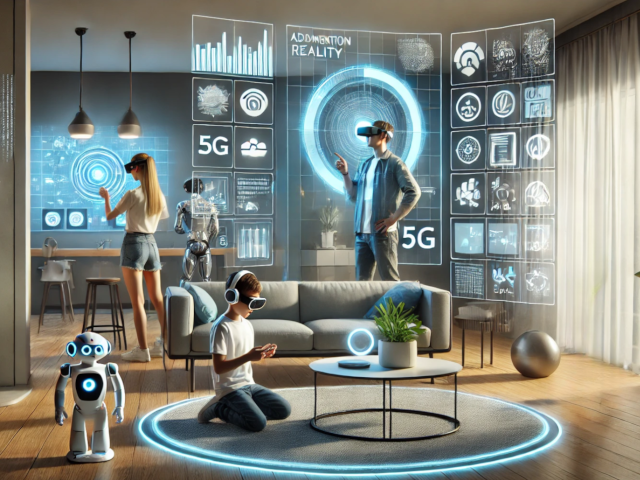In 2024 breakthroughs in technology like AI, redefined industries and how we work. As these technologies advanced sustainability also became a core focus as the need to develop greener, more efficient solutions became clearer.
These advancements laid the groundwork for a new era and 2025 promises to build on this momentum, ushering in trends that will further revolutionise industries, enhance personalisation, and simplify complexity across the board. In the new year, the technology landscape will likely be defined by a blend of regulation, innovation, resilience, and a drive for inclusivity and sustainability, addressing both the opportunities and challenges of the rapidly evolving tech ecosystem.
The omnipresence of AI
Artificial Intelligence (AI) was at the forefront of emerging technologies in 2024 and this will likely continue into 2025 - most likely at an accelerated rate. According to Tech Nation Co-Founder, Cheryl Kahla, Gen AI will be everywhere this year, powering more large language models (LLMs), agents, and applications than ever before.
“AI is going to be everywhere, infused into everything, from our smartphones and smart homes to our cars and even home appliances,” mirrors Akhram Mohamed, Managing Director of The Blank Canvas and Editor at Geekhub.co.za. “Think personalised experiences, smarter automation and devices that become an extension of ourselves. Imagine a smart home that anticipates your needs, adjusting the lighting and temperature before you even ask, or a fitness tracker that creates a personalised workout plan based on your sleep patterns and recovery rate. AI is about to make our devices feel like they were designed just for us.”
He observes that AI will also transform how we consume entertainment, with streaming platforms offering hyper-targeted recommendations and smart speakers providing contextual responses; “It's all about creating a seamless, intuitive experience that makes technology feel more like a personalised companion”.
“For the first time in history, we are able to ‘talk’ to our data. We can upload a PDF with user data into an AI agent and have a conversation with it,” adds Kahla. “And as chatbots and agents continually advance, we are progressively shifting towards a reality where we could ‘talk’ to our devices the way we’re already talking to ChatGPT.”
A transformative shift in devices
Advancements in device and wearable technologies are redefining how we interact with tech, driving both form and function and marking a new era of convenience and personalisation in everyday tech.
First and foremost, the foldable revolution is reshaping mobile and computing devices, offering unprecedented flexibility and portability. While far from ubiquitous, foldable phones are no longer a novelty. “We can expect to see more foldable devices, from smartphones and tablets to laptops and even TVs, but that is likely to kick off in 2026,” notes Mohamed.
Meanwhile, the amplification of seamless integration across devices and systems will enhance connectivity in 2025, enabling smoother workflows and smarter ecosystems, while increasingly personalised health gadgets are expected to empower individuals to take control of their wellbeing with real-time monitoring and tailored insights.
“Consumers crave seamless interactions between our smartphones, home devices, and entertainment systems, wherever we can get it and we can expect to see much deeper integration create more connected and intuitive ecosystems,” adds Kahla. “Additionally, as seen at CES 2025, most health and wellness devices are already using AI to provide tailored insights and wellness management in real-time.”
Realising the potential of AR
Augmented Reality (AR) has long promised to bridge the gap between the digital and physical worlds, and 2025 could be the year this transformative technology comes into its own as AR steadily carves its place, offering practical and immersive applications that extend far beyond entertainment.
"This technology has the potential to truly revolutionise the way we interact with technology and become an extension of ourselves," says Mohamed.
Imagine using smart glasses to overlay useful information on your surroundings, from step-by-step repair instructions to virtually trying on clothes. In the home, AR could allow users to visualise furniture placement, control devices with gestures, or even blend virtual worlds with real spaces to create interactive games. This revolution is increasingly tied to the development of smart devices, with wearables, like smart glasses, leading the charge. We can expect it to really take off in 2025 and beyond.





